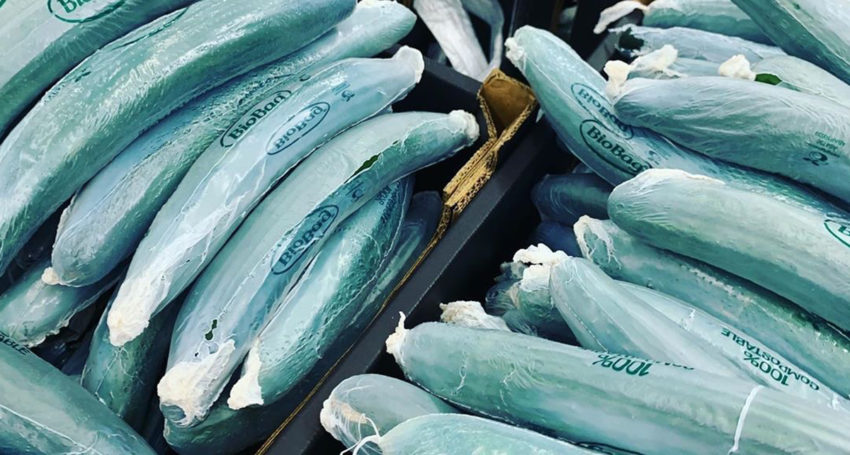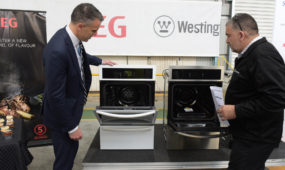Compostable cucumber wrap delivers a win in war on plastic
Manufacturing
A fully compostable shrink-wrap for cucumbers has been developed in South Australia and is set to be launched on international markets.

Sign up to receive notifications about new stories in this category.
Thank you for subscribing to story notifications.

The compostable wrap is manufactured by BioBag World Australia and took 12 months to develop in partnership with South Australian produce and packaging businesses IG Fresh Produce.
It was launched in September as an environmentally friendly alternative to the traditional polyethylene plastic wrap and has already generated export interest from Qatar and South Africa.
IG Fresh executive director George Antonas said he was approached by South Australian independent grocer Drakes Supermarkets to develop a compostable fruit and vegetable wrap to replace traditional shrink-wrap.
Antonas said the product was being used exclusively on cucumbers sold at Drake’s 38 South Australian supermarkets until October 16, after which it’d be available for a wide range of purposes.
“JP Drake put the challenge to us and so we gave them product exclusivity for the first four weeks,” Antonas said.
IG Fresh produce is a fruit and vegetable wholesaler located the South Australian capital Adelaide.
Antonas said a potential investment partner from Qatar had travelled to Adelaide for the product launch with Drakes. He expected to begin exporting cucumbers dressed in the compostable wrap to Qatar by the end of October, with exports to South Africa and Europe to follow.
The bioplastic film is made from a compostable resin called Mater-Bi that uses substances obtained from plants including non-genetically modified corn starch.
While there are other compostable products on the market, Antonas said creating a 100 per cent industrially compostable cucumber wrap required a unique process.
“That’s where Scott Morton’s expertise came into it – because it’s heat shrunk onto the cucumber. There’s plenty of compostable products out there but this one is for a specific purpose,” Antonas said.
“There’s a big push to make all single use packaging compostable. So, you buy a cucumber, you peel off the wrapper and you put it in your greens bin and you know it’s not going to add to landfill and that sort of thing. Plastic has its place but not for single use, it just creates too much waste.”
According to Antonas, the cucumber compostable wrap has the potential to be used on all fruit and vegetables, and BioBag World Australia director Scott Morton agrees.
“The potential is endless. It’s improving all of the time. I see it as a direct replacement for plastic,” Morton said.
Norway-based BioBag has six factories and 20 market or distribution partners around the world, producing over one billion bags a year.
Morton said BioBag was also working on a non-shrink-wrap compostable product that could replace plastic cling films.
He said the cucumber wrap developed in South Australia could also be distributed in major global markets including the United States.
“We’re trying to enhance the current cucumber wrap. It’s not quite suitable yet as a cling wrap alternative,” he said.
“We’re developing a new product that’s more for the international market. That’s a product that will especially keep fruit and vegetables fresh.
“We have some proprietary technology that we incorporate into it, so that way it’ll keep fruit fresh.”
Jump to next article



